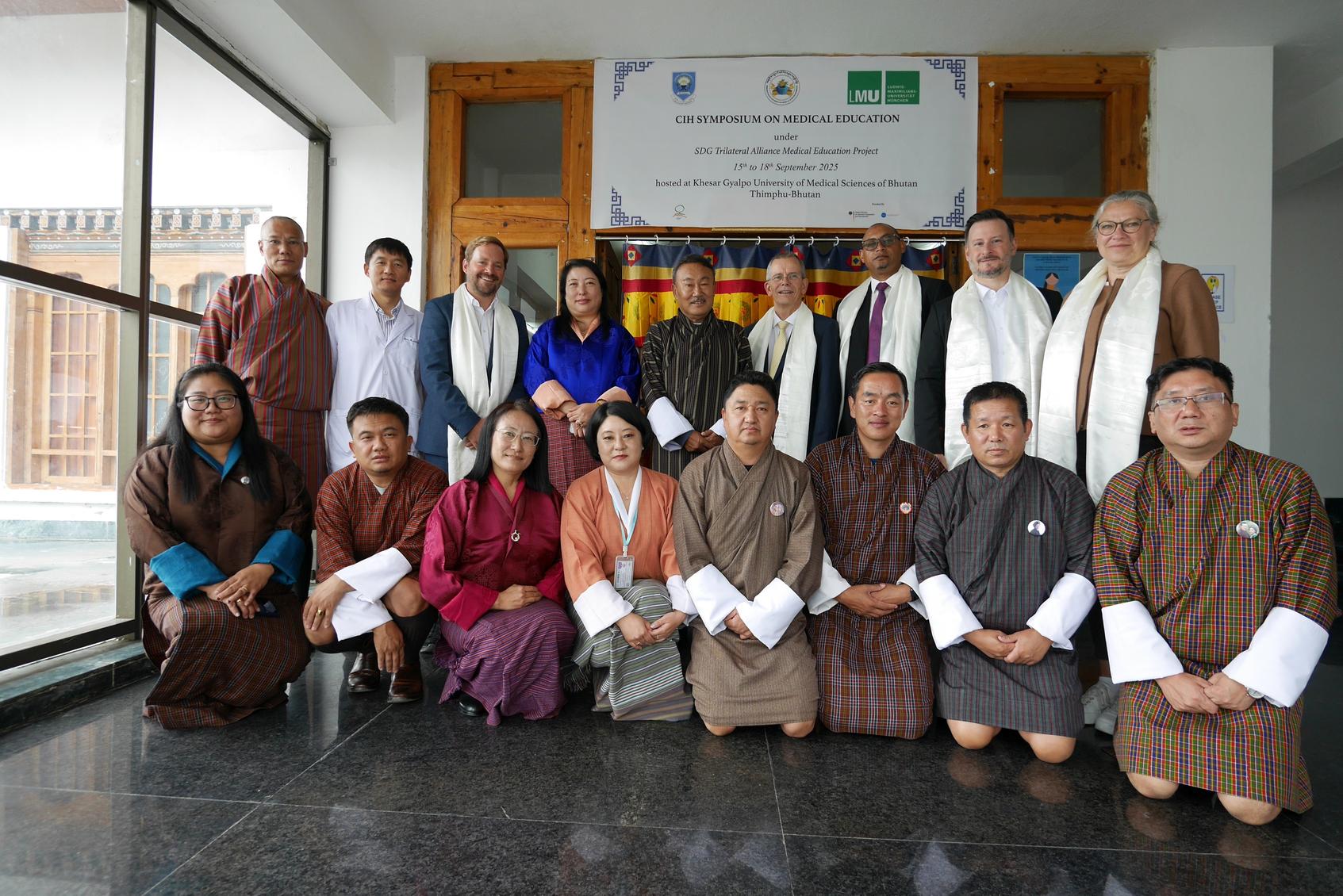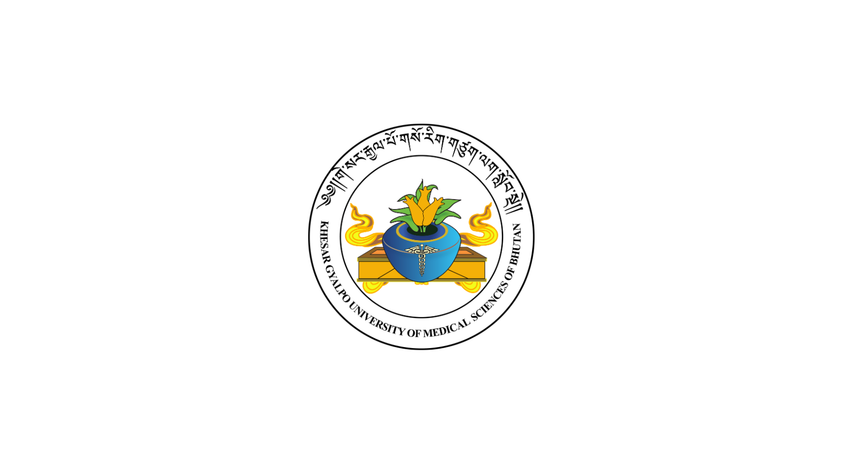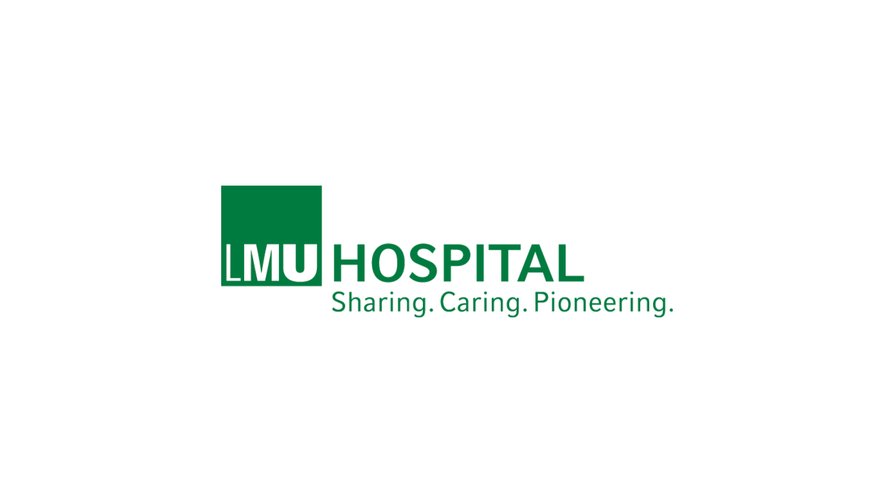A Trilateral Alliance for Medical Education – SDG Partnership Programme
The World Health Organization (WHO) warns of a global shortage of qualified healthcare personnel caused by a lack of investment in training, employment, and adequate remuneration. Well-trained medical professionals are crucial to the resilience of healthcare systems, especially when dealing with natural disasters, environmental risks, and health risks.
The SDG Partnership Project has been launched in 2025, in response to the call of the German Federal Ministry for Economic Cooperation and Development and is being coordinated by the German Academic Exchange Service (DAAD). The objective of the project is to address current global challenges and promote sustainable development through international cooperation in the health sector and work towards the Sustainable Development Goals (SDGs).

Partner universities and collaboration
The project brings together three public universities:
All three institutions engage in patient care, undergraduate and graduate education, and medical research. Jimma University was one of the first partner universities of the CIHLMU, with the cooperation dating back to 2002. KGUMSB became a partner a few years later, in 2015. Since then, unrelenting collaboration has led to a range of joint initiatives in medical education. The trilateral alliance now constitutes a major advancement in the promotion of intercultural and academic exchange.
Project focus areas
1. Fellowship program in pediatric urology
There are currently no specialists in Bhutan who can independently treat urinary tract malformations. Previously, training in subspecialties was not available in the country, meaning doctors had to be trained elsewhere.
Our goal is to provide continuous specialized training within the country, producing more specialists who can perform a defined set of corrective surgical operations independently. This will significantly improve the situation for patients, caregivers and the national health system. We plan to use Entrustable Professional Activites (EPA’s) as a competency-based training method for fellows.
2. Trilateral research and teaching development
The World Health Organization (WHO) called for a shift towards competency-based medical education as early as 1978. This goal has only been partially achieved worldwide, which has considerably influenced the achievement potential of the SDGs. One exception here is KGUMSB. For KGUMSB, securing and sustainably training the next generation of healthcare professionals is vital to meet future challenges. Beyond technical skills, fostering effective communication and teamwork is essential for delivering high-quality and safe patient care - competencies that must be nurtured during healthcare training. Interprofessional education (IPE) enables students from different health professions to learn with, from, and about each other, gaining an understanding of their colleagues’ roles and responsibilities, which is crucial for effective teamwork (Radkowitsch et al., 2021). Early exposure to IPE can improve communication and collaboration among healthcare providers, leading to safer and better patient outcomes. The WHO (2010) recommends embedding interprofessional education as a core part of health curricula.
Jimma University, a leading public university in Ethiopia, has consistently ranked among the top institutions nationally. It has been entrusted by the federal government to evolve into a research university, representing the highest tier within the national education framework. However, transitioning from a locally focused institution to one engaged in effective international collaboration presents significant challenges. To strengthen the research ecosystem, academic staff require capacity-building opportunities, enhanced collaboration, and expanded networking.
Since 2012, LMU University Hospital has offered interprofessional seminars to promote collaboration among healthcare professions. Over time, these seminars have expanded, with faculty receiving specialized training in interprofessional teaching. The program is regularly evaluated and continuously growing, with ongoing efforts to increase interprofessional training wards, allowing more students to gain practical experience working together.
3. Trilateral student exchange
Students from Bhutan, Ethiopia, and Germany benefit from exchanges that transcend cultural and disciplinary boundaries. Practical experience in different healthcare systems and cultures broadens their skills and strengthens their understanding of global health challenges. Examples include community-based education in Ethiopia, simulation training in Munich, and competency-based training in Bhutan. The exchange is structured and supervised to ensure sustainable learning outcomes.
Contribution towards the Sustainable Development Goals (SDGs)
The project specifically supports:
- SDG 3: Ensure healthy lives and promote well-being for all
- SDG 4: Ensure inclusive and equitable quality education
- SDG 17: Strengthen the means of implementation and revitalize the global partnership for sustainable development
More about the Sustainable Development Goals can be found here.
Financial Support:
This project is funded through the SDG Partnerships programm, by the German Federal Ministry for Economic Cooperation and Development (BMZ) and the German Academic Exchange Service (DAAD) for the period of four years, from 2025 until 2028.
Project Team & Contact

PBL training ©Fabian Jacobs

MoU signing ©Fabian Jacobs





